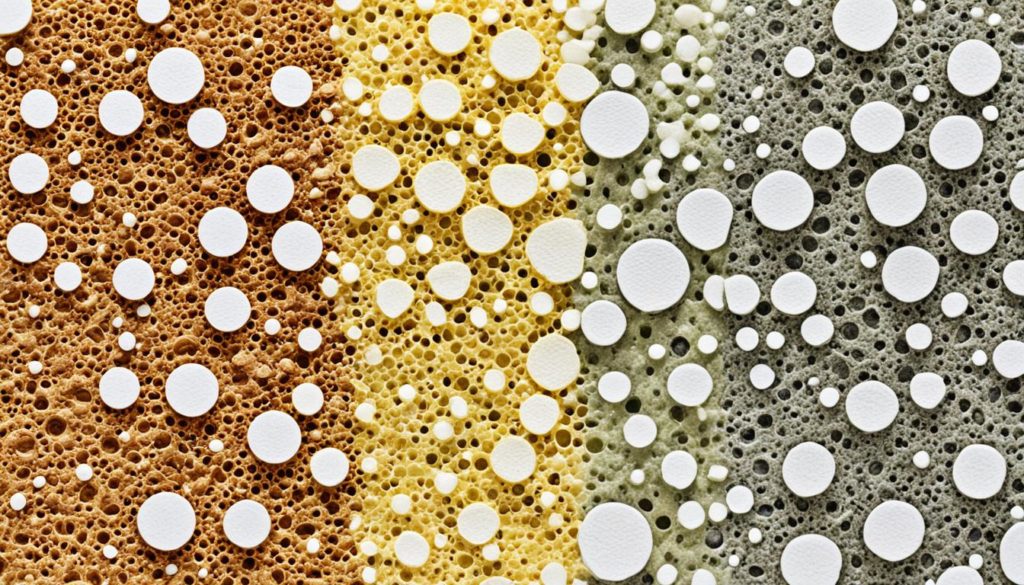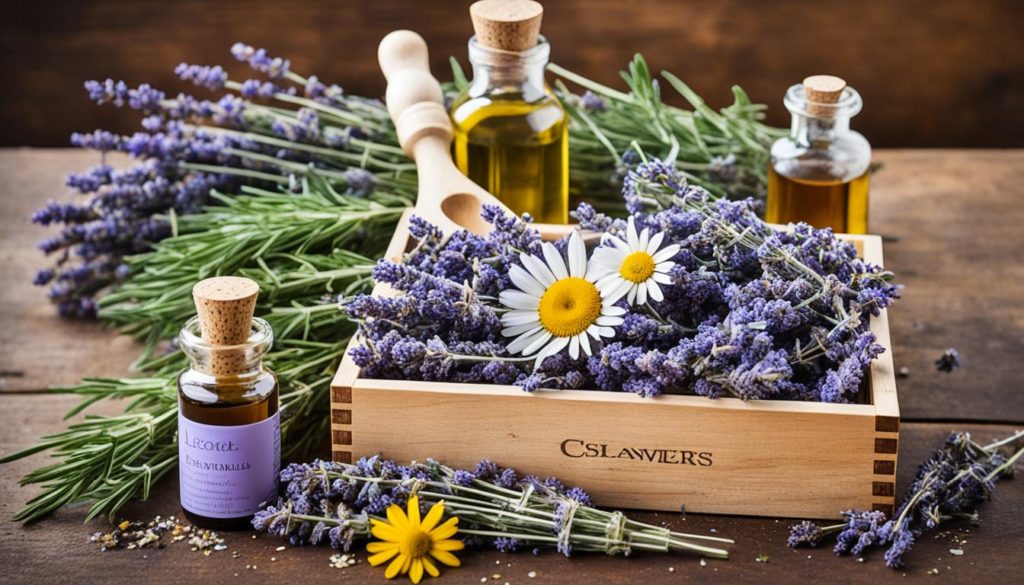About 85% of individuals between 12-24 years face some level of acne. This common challenge leads many to seek out holistic acne solutions. These provide clearer skin without conventional treatments’ side effects. In this piece, we look into natural solutions for acne, highlighting the need to explore options beyond mainstream methods.
Acne can deeply affect someone’s emotions and mental health. While creams and antibiotics are widely used, they may have downsides. Opting for holistic solutions allows for exploring other methods. These methods boost overall well-being and lead to clearer skin. This includes natural solutions, lifestyle changes, and mindfulness.
Getting to healthy, clear skin involves several steps. These include eating better, using natural skincare products, and managing stress. We will delve into various effective and natural acne treatments next. This will guide you on achieving healthy skin through natural ways.
Key Takeaways
- Around 85% of people aged 12-24 struggle with acne, highlighting the need for effective treatments.
- Holistic acne solutions offer a pathway to clear skin without the side effects common in conventional treatments.
- Natural acne solutions can integrate dietary changes, mindfulness practices, and natural skincare.
- Holistic approaches to acne prioritize overall health and well-being.
- Upcoming sections will explore various natural and alternative acne treatments in detail.
Understanding Acne: Causes and Conventional Treatments
To really understand acne, we must look at what causes it. Hormonal changes, especially during puberty and menstrual cycles, play a big part. Also, certain bacteria like Propionibacterium acnes make things worse by causing inflammation. What we eat and how much stress we have can also affect our skin.

Knowing why acne happens helps us choose the right treatments. Common options include retinoids, antibiotics, and hormone therapy. Retinoids, which come from Vitamin A, help by unclogging pores and cutting down on oil. But, they might irritate your skin and make it more sensitive to the sun.
Antibiotics fight the bacteria and reduce swelling. But using them too much can make them less effective over time. Hormone treatments can help balance your body, but they might lead to weight gain or mood swings.
The table below shows different acne treatment options and what to watch out for:
| Treatment Option | Description | Potential Side Effects |
|---|---|---|
| Retinoids | Derived from Vitamin A, unclogs pores, reduces oil production | Skin irritation, photosensitivity |
| Antibiotics | Targets bacterial infections, reduces inflammation | Antibiotic resistance, gastrointestinal issues |
| Hormonal Therapy | Balances hormone levels, often using oral contraceptives | Weight gain, mood changes |
While these treatments can be powerful, their downsides make it crucial to look at all options. By understanding these traditional methods, we can better explore all ways to manage acne effectively.
Natural Skin Care Remedies for Acne
Natural remedies for acne use ingredients known for fighting bacteria and reducing inflammation. They are effective for managing acne.

Benefits of Natural Ingredients
Ingredients like tea tree oil are great for acne. They kill acne-causing bacteria. Aloe vera and honey heal inflammation and keep skin moist.
DIY Natural Skin Care Recipes
You can make your own acne treatments to fit your skin’s needs. Here’s how to use natural ingredients:
- Tea Tree Oil Toner: Mix tea tree oil with water. Apply with a cotton pad on spots.
- Aloe Vera Gel: Put fresh aloe gel on skin. Leave it for 20 minutes, then rinse off.
- Honey and Cinnamon Mask: Mix honey and cinnamon. Apply on the face for 15-20 minutes.
Precautions with Natural Remedies
Even though natural remedies are usually gentle, be careful. Test new treatments on a small skin area first. Don’t mix too many natural ingredients without knowing if they work together.
Holistic Acne Solutions
Embracing holistic acne solutions means tackling acne from all sides. This includes improving your mind-body health, changing your diet, and adding the right supplements. Such a thorough approach helps fight acne better, clearing your skin.
Mind-Body Approaches
It’s important to see how our minds and bodies are connected, especially when fighting acne. Stress and emotional health play big roles in skin health. Using yoga, meditation, and mindfulness can lower stress.
Adding these activities to your daily life betters your mental health. In turn, this could also reduce your acne.
Diet and Nutrition
Knowing how your diet affects acne is key. Eating anti-inflammatory foods can lead to clearer skin. Enjoy leafy greens, berries, nuts, and fatty fish for their skin benefits. Cutting down on sugar, dairy, and processed items helps too.
| Beneficial Foods | Detrimental Foods |
|---|---|
| Leafy Greens | High-Sugar Snacks |
| Berries | Dairy Products |
| Nuts | Fried Foods |
| Fatty Fish | Refined Carbohydrates |
Supplements for Acne
Certain supplements can also fight acne alongside diet changes. For example, Omega-3 fatty acids in fish oil reduce inflammation. Zinc helps control oil and repairs skin. Always get advice from a doctor before starting supplements.
Using these holistic methods can lead to healthier skin. They improve your well-being on all fronts.
Exploring Herbal Acne Treatments
Herbal remedies for acne are loved for being natural and gentle. They have been used for hundreds of years. People choose herbs for clearer skin, influenced by old wisdom and new research. We’ll look at herbs proven to fight acne and how to make herbal concoctions.
Common Herbs Used for Acne
Many herbs can fight acne because they’re antiseptic and anti-inflammatory. Here are a few important ones:
- Witch Hazel: It’s known for shrinking pores and soothing skin.
- Calendula: Great for fighting bacteria and healing skin, it helps prevent scars.
- Green Tea: Full of antioxidants, it cuts down oil production and soothes sore skin.
Making Herbal Infusions and Extracts
Creating your own herbal treatments lets you tailor your acne care. Here’s how to start:
- Herbal Infusion: Soak 1-2 teaspoons of dried herb in hot water for 10-15 minutes. Strain and cool it down. Use it to wash your face or as a compress for the best effect.
- Herbal Extract: Put dried herbs in a jar and cover with strong alcohol like vodka. Seal the jar and keep it somewhere dark and cool for 4-6 weeks, shaking now and then. Filter it and keep the liquid in a dark bottle.
| Herb | Properties | Application |
|---|---|---|
| Witch Hazel | Astringent, Anti-inflammatory | Toner, Compress |
| Calendula | Antibacterial, Healing | Infusion, Extract |
| Green Tea | Antioxidant, Sebum Control | Rinse, Compress |
Using herbal remedies can offer a natural and effective way to deal with acne. By combining old and new knowledge, herbs stand out as a powerful tool for skin care routines.
Alternative Medicine for Acne: Practices and Efficacy
Alternative medicine for acne is becoming more popular. It aims to fix skin issues from the inside. Acupuncture and Ayurvedic solutions are two main practices. These old methods help manage and lessen acne with fewer side effects than regular treatments.
Acupuncture and Acne
Acupuncture is part of Traditional Chinese Medicine. It uses thin needles at certain body points to balance energy. This method is thought to lower inflammation and boost skin health. Studies show acupuncture might lessen acne by addressing hormonal imbalances and stress.
Ayurveda and Acne
Ayurvedic acne solutions aim to balance the body’s doshas—Vata, Pitta, and Kapha. This ancient practice from India uses herbs, diet changes, and lifestyle tweaks for clear skin. Neem, turmeric, and sandalwood are common remedies. They have anti-inflammatory and antibacterial effects. Ayurvedic care is personalized, making it a tailored skincare approach.
Benefits of Organic Acne Treatments
Organic acne treatments are getting a lot of attention lately. People like them because they don’t use harsh chemicals for skin care. These natural options aim to lower irritation and help skin health.
Organic treatments avoid strong chemicals. Conventional products use things like benzoyl peroxide which work but can make skin dry and irritated. Instead, organic options use gentle ingredients like aloe vera and tea tree oil to soothe the skin.
The positive impact on the environment is another big plus. By skipping synthetic chemicals, these products are kinder to the earth. They’re often biodegradable and made in ways that don’t hurt the planet.
They’re also packed with vitamins and antioxidants. For instance, green tea extract in some products fights inflammation and supports skin health, without harsh chemicals.
For those with sensitive skin, organic solutions can be a game-changer. They rarely cause allergic reactions. This makes them a safe pick for people who can’t use standard treatments.
| Conventional Acne Treatments | Organic Acne Treatments |
|---|---|
| Contains synthetic chemicals | Utilizes natural ingredients |
| Can cause skin irritation | Generally gentle on the skin |
| May contribute to environmental pollution | Eco-friendly and sustainable |
| Effective but often harsh | Nourishing and mild |
Overall, organic acne treatments are about more than just clear skin. They embrace a chemical-free approach and care for the planet too. It’s a strong argument for anyone looking for effective, yet gentle acne solutions.
Traditional Chinese Medicine for Acne: Insights and Techniques
Traditional Chinese Medicine (TCM) has a unique view on acne. It looks at internal imbalances as the main cause of skin problems. Instead of just treating acne on the surface, like Western medicine, TCM aims to fix the balance inside the body. This approach helps in getting lasting relief from acne.
Herbal Formulas in TCM
TCM uses TCM herbal formulas made just for you. These mixes often have herbs meant to clear heat, reduce dampness, and fix the balance of Yin and Yang. Ingredients like honeysuckle, dandelion, and peony root work together against different acne types. To see how these formulas can help with acne, check out PULSE TCM Acne Management Programme.
Acupressure for Acne
Acupressure is another key method TCM uses to treat acne. It involves pressing certain points on the body. Techniques like these acupressure techniques trigger the body’s own healing. Points like LI4 (Hegu) and ST36 (Zusanli) boost circulation, help detox, and lower inflammation. Adding acupressure to a TCM acne plan makes the treatment even better. It shows TCM’s complete way of looking at health.
Home Remedies for Blemishes
Exploring home treatments for blemishes can be eye-opening. Items like apple cider vinegar, baking soda, and lemon juice are great for acne. They have healing elements that make them excellent natural skin remedies.
Apple cider vinegar fights bacteria, making it great for clearing skin. Mix vinegar with water and put it on spots with a cotton ball. Wait for 5-10 minutes, then wash off. Using it once or twice daily can bring good results.
Baking soda is good for exfoliating skin. Mix it with water to make a paste. Put it on your spots and rinse after 5-10 minutes. Do this several times a week for the best skin.
Lemon juice is full of vitamin C and helps with blemishes. Dab it on with a cotton swab and rinse after 10 minutes. Use this method a few times a week, and always moisturize afterward.
Using these items can help manage acne cheaply at home. Adding them to your skincare routine may improve your skin’s look and health. Remember, using these treatments the right way is important for the best results.
FAQ
What are holistic acne solutions?
Holistic acne solutions take a full-body approach to treating acne. They consider your physical health, emotions, and what you eat. Techniques like managing stress, changing your diet, and using natural supplements are key. These methods get to the root of acne, leading to clearer skin and better health overall.
What natural skin care remedies are effective for acne?
Natural remedies like tea tree oil, aloe vera, and honey work well for acne. They fight bacteria and reduce inflammation. You can make DIY acne treatments with these ingredients right at home.
How do diet and nutrition impact acne?
Your diet is crucial for skin health. Eating foods that fight inflammation, such as fruits, veggies, whole grains, and omega-3 fats, helps. Also, staying away from sugary, high-glycemic foods can manage acne better.
What are some common herbal acne treatments?
Herbs like witch hazel, calendula, and green tea are great for acne. They have healing and anti-inflammatory properties. Using herbal infusions or extracts can improve your skin.
Can acupuncture help with acne?
Yes, acupuncture can aid acne treatment. It works by enhancing blood flow, lowering inflammation, and balancing hormones. This ancient method has shown promise in treating skin issues, including acne.
What are the benefits of using organic acne treatments?
Organic treatments are great because they don’t have harsh chemicals. They’re gentle on sensitive skin and good for the environment, too. Ingredients like aloe vera and chamomile offer safe and effective ways to treat acne organically.
What is Traditional Chinese Medicine’s approach to treating acne?
Traditional Chinese Medicine (TCM) looks at the bigger picture of acne. It uses herbs and acupressure to fix the imbalances in your body that cause acne. This is different from Western medicine that often only treats acne’s symptoms.
Are home remedies for blemishes effective?
Yes, using things like apple cider vinegar, baking soda, and lemon juice can help. These remedies have properties that reduce blemishes. Regular and correct application can make your skin clearer.


